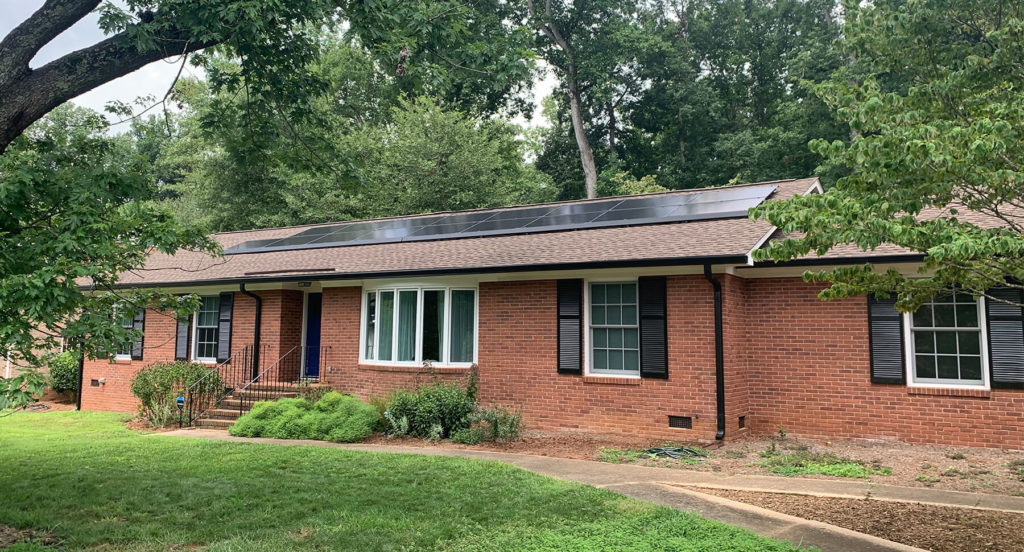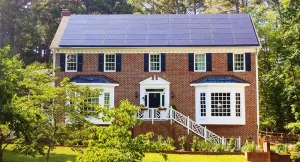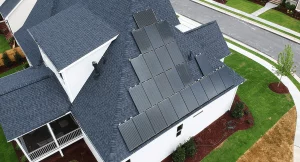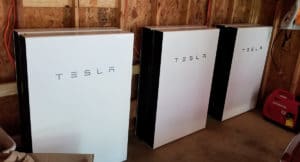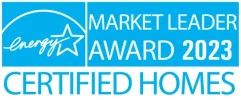Lessons in this Module
Lesson 01
How Much Does a Home Solar System Cost in North Carolina?
“How much does solar cost?” is the most common question people have about home solar systems. It’s a simple question with a complicated answer. The simplest answer is that our average 8.5kW system is roughly $24,000-27,000 (roughly $17,000-19,000 out of pocket after applying the Federal Tax Credit incentive). While that’s the average, our actual home solar prices in 2023 ranged from $11,000 on the low end all the way up to $150,000!
NEW LIMITED TIME INCENTIVE PROGRAM: If you’re a Duke Energy customer, you may be eligible for the PowerPairSM Incentive Program which can save you up to $9,000 off your new solar + battery system.
The graph below shows how widely the cost of home solar can vary based on factors like site location, sun exposure, available roof space, home energy use, and energy offset goals
Common Question
9kW Solar System Cost?
The cost of a 9kW solar system in North Carolina is roughly $25,000 – 30,000 (~$18,000-20,000 out of pocket after applying the Federal Tax Credit incentive). If you’re a Duke Energy customer, you may also be eligible for up to $9,000 off your new solar + battery system with the PowerPair Incentive Program.
Again, we’re going to heavily caveat this pricing based on various factors unique to you and your home, such as your typical energy use, how much sunlight your roof gets throughout the year, the pitch of your roof, any roof obstructions, etc.
Our team is happy to customize a design fit for your energy goals to give you a better picture of how much solar will cost for you.
If you want to know exactly how much solar will cost for you, reach out to one of our solar educators for a free assessment and a custom quote.
Lesson 02
Solar Tax Credit Incentive & Utility Rebates
Now you know the price range of a solar system, but that’s only part of the story. North Carolina has 2 major solar incentives available for home solar systems right now: The 30% Federal Solar Tax Credit and Duke Energy’s PowerPair Incentive Program. Understanding how the tax credit is applied to the price of solar is crucial to determining the true cost of your solar system. Here’s a breakdown:
30% Federal Solar Investment Tax Credit
- Price Impact: 30% of System Cost
If you live in the US and pay Federal Taxes, then you’re eligible for the 30% Federal Solar Investment Tax Credit (ITC) which will drop the price of a $25,000 solar system down to $17,500!
For example, if you buy a $25,000 solar system and at the end of the year you owe $8,000 in Federal Income Taxes, you can claim the 30% Solar ITC for $7,500 ($25,000 x 30% = $7,500) and then you will only owe $500 in Federal Taxes ($8,000-$7,500 = $500).
A general word of warning: we’ve seen a few solar companies in North Carolina try to apply the tax credit to energy efficiency upgrades like insulation or LED lighting. These upgrades are not eligible for the 30% Tax Credit and shouldn’t be included in any solar pricing.
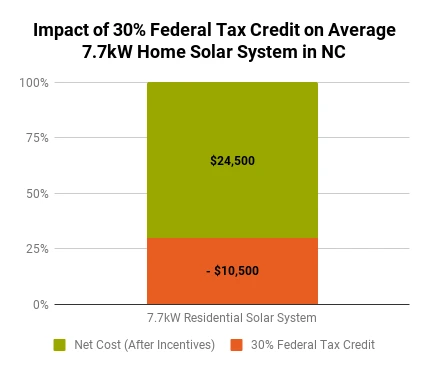
Good news — The 30% Solar Tax Credit is here to stay for the next 10 years! Standalone batteries now also qualify for the 30% Solar Tax Credit.
Duke Energy PowerPair Incentive Program
- Price Impact: Up to $9,000
Homes that install a new solar + battery system in Duke Energy territory may also be eligible for the PowerPair Incentive Program worth up to $9,000. When combined with the 30% Federal Tax Credit, you can see around 50% off the total of a new solar + battery system!
The second application window reopens on June 21 and space is limited – reach out today for a solar + battery evaluation so we can make sure you’re ready to get your application in as soon as possible!
Now it’s time for a Tax Advice Disclaimer: Southern Energy Management is a company of solar installers, energy raters, building scientists, dogs, dreamers, and entrepreneurs but we are not a tax provider, financial adviser, or legal attorney. This post is definitely not professional tax advice or any other type of professional financial guidance. Your actual tax benefits from a solar system may be different from what we’ve estimated here, so please consult a tax professional before you make any decisions. If you don’t have a tax professional on hand, don’t worry, we keep an CPA specializing in energy and tax issues on retainer that you can use as a resource.
Lesson 03
What Makes Up the Cost of Solar for Your Home in North Carolina?
Now that we’ve established the cost of a home solar system, the next question is: “What makes up that cost?”. Buying a solar system is like buying a new car or remodeling your kitchen. There is a base model that will get the job done, but within each component, there are a range of prices based on materials, brand, etc. Here are the major elements that make up the cost of a solar system:
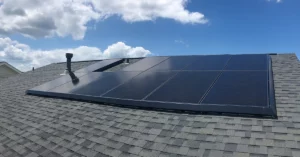
Solar Panels
The bulk of your system and the most obvious component you’ll need
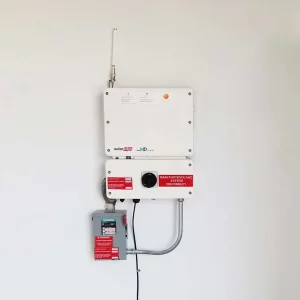
Inverter(s)
Converts the direct current (DC) generated from your solar panels into alternating current (AC) that can be used by all the appliances and systems in your home
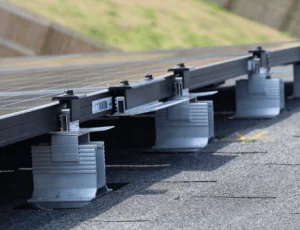
Racking System
Keeps your solar panels on your roof where they belong
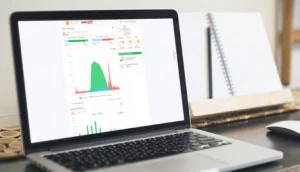
Solar Monitoring System
Allows you to track your solar savings right from your phone; perfect for showing off to your friends

Installation Labor
The fun part; our 100% in-house team of installers transforms your roof into an independent clean energy power plant
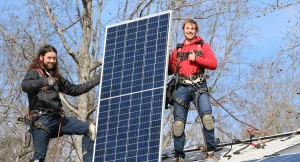
Design, Permitting, Admin
Every utility and local inspection department has its own standards, requirements, and forms (so many forms!) for going solar. We take care of all of this for you!
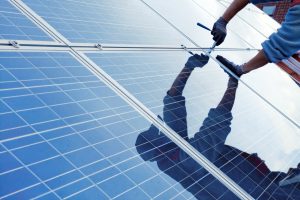
Balance of System
All of the wires, nuts and bolts, junctions boxes, fuses, love, sweat, tears, etc. that complete the system
These components are all standard, so what changes the price of system? In the lesson below we break down the major and minor cost variables for a solar system.
Free Solar Power 101 Guide
Lesson 04
Home Solar Cost Adders
Diving deeper, there are major and minor cost adders that contribute to the turn-key price of your solar system. Here’s a rundown of the various solar costs that fluctuate based on conditions unique to each home. So when you approach us at an event like Eno Fest and ask “What would solar cost for my home?” these are the elements that prevent us from giving you a fully custom turn-key price on the spot. 😉
Major Solar System Cost Adders
Solar System Size
- Price Impact: Infinite
Size is the most important–and probably the most obvious–variable for a solar system’s cost. As your system size increases, it will require more materials and labor for installation and the price will increase as well. While the price continues to increase as systems get bigger, the price per watt (price divided by the system’s wattage) gets lower–in other words as the system gets bigger you get more watts for each dollar you spend.
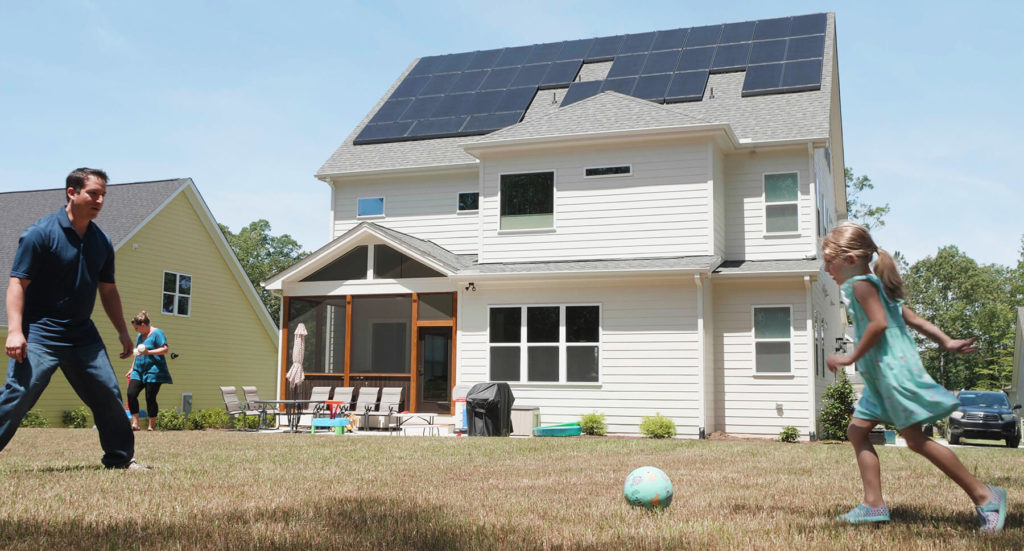
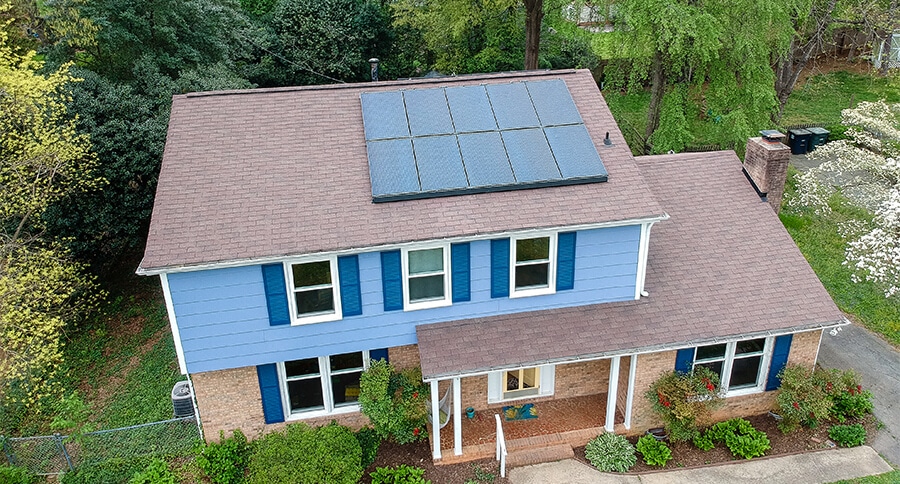
Common Question
Solar Cost Per Panel?
We typically don’t refer to a solar system’s cost on a per panel basis, but rather a turn-key price given several factors. These include the variable capacities of different panels based on manufacturer and model; the additional required system components such as inverters and mounting equipment for different system sizes; and installation costs, which make up a significant portion of the overall expense (for example, we have 100% in-house installation crews that receive benefits, while other companies might contract their work out to hourly workers who are not offered benefits like insurance).
The total cost is also based on geographical factors – variations in local installation charges, permitting fees, and the availability of incentives. Incentives, like the 30% Tax Credit, can substantially lower the total cost, making the turn-key price a more accurate representation of the actual cost of solar for homeowners or businesses. The total cost also allows for a more effective comparison across different solar systems and providers.
Panel Type
- Price Impact: Roughly $1,000 Increase for Monos
There are two main types of solar panels in NC: polycrystalline (polys) and monocrystalline (monos). Polys are generally less expensive but are widely considered less aesthetically pleasing because their cells have a blue space-age appearance while monos have more fashionable all-black cells.
Polys are slightly less expensive, but some people (we’re not naming any names!) don’t dig their space-age blue appearance. Monos are traditionally more expensive, but their fashionable all-black cells are preferred by many homeowners (and probably also by snazzy New York fashion bloggers).
So, it all really comes down to solar panel cost vs quality and aesthetics. Learn more about solar panels here →
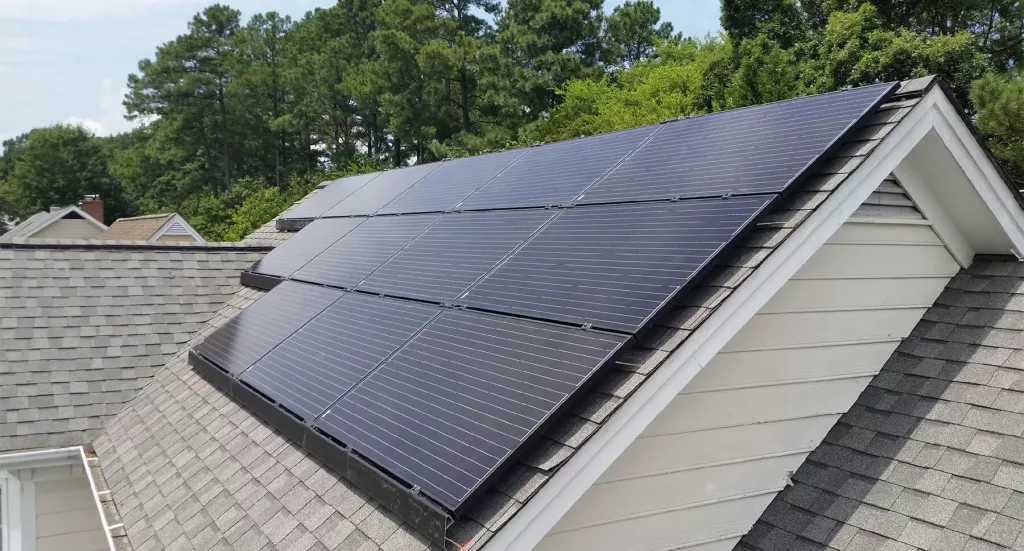
Common Question
Installation cost of solar panels per watt?
While you may hear people talking about “price per watt” when discussing their solar panel costs, we typically do not refer to the cost of solar panels by watt. This is because there are many factors included in the design and ultimate pricing of a complete solar system: such as the installation location, complexity of the installation, local permitting fees, and the specific rates of the solar company you’re working with (like whether they provide insurance and benefits for their installation teams).
We believe transparency is important, especially when it comes to pricing so we encourage anyone looking into solar to make sure costs and pricing are clear on any proposal they’re looking at. That’s why we use a turn-key price instead of a price per watt.
For a 8.5kW solar system in North Carolina, our total turn-key costs are roughly $24,000 – 27,000 (~$17,000-19,000 out of pocket after applying the Federal Tax Credit incentive).
Roof Mounted vs Ground Mounted
- Price Impact: $6,000 - $10,000
Most of our home solar installs are on the roof, but occasionally a roof is too shaded, too complicated, too small, too something to hold a solar system–so we install the system on the ground instead. The price increase is for trenching or directional boring, drilling, racking system, and additional permitting. While ground mount solar has a higher cost at the outset, you may save more money by generating more power in the long run.
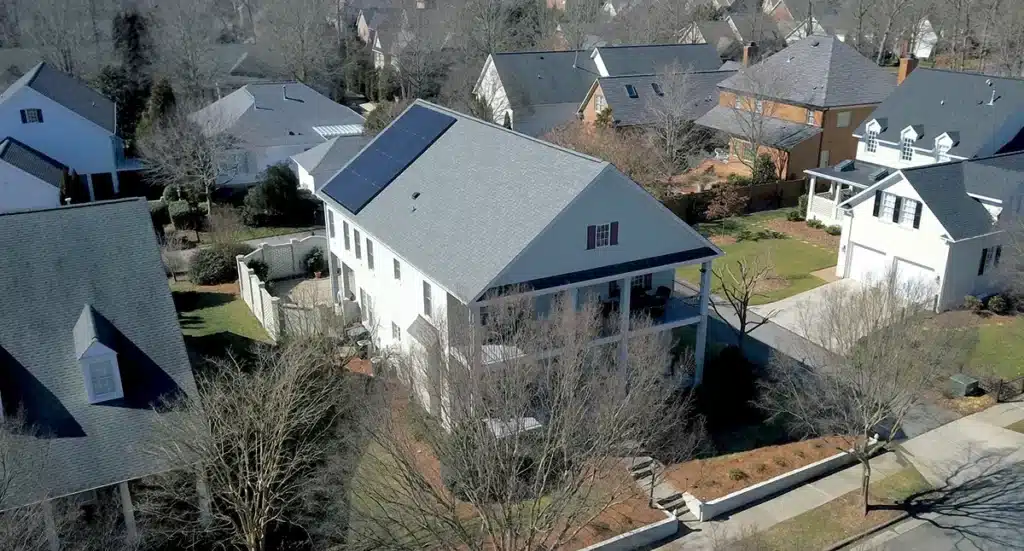
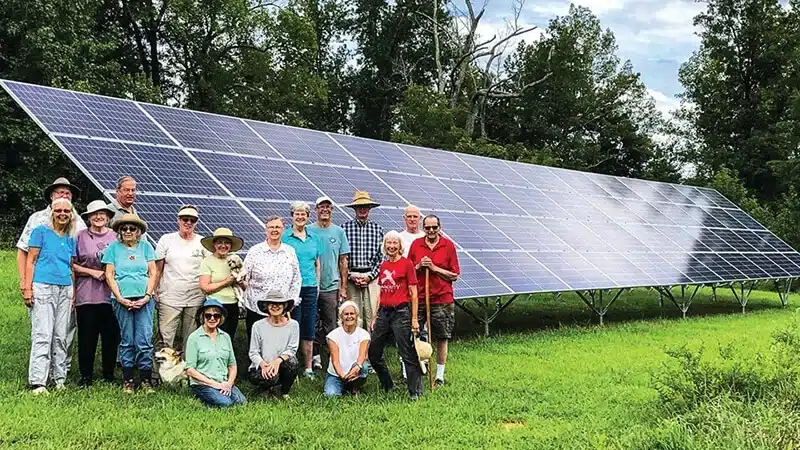
Common Question
Cost to remove and reinstall solar panels for a roof replacement?
Our biggest recommendation is to make sure your roof is ready for solar before getting your panels installed. If you anticipate a roof replacement in the next 5-7 years, we recommend prioritizing that item on your list before going solar.
When the time for a roof replacement does come, we can still remove the panels thanks to how the racking system works that hold your panels in place. A ballpark estimate of the average cost of a solar removal and reinstall ranges from $4-6K, but varies depending on the complexity of your roof and your solar system size. Reach out if you have questions about solar and your roof.
Battery Storage
- Price Impact: $13,900 - $14,900 (Before Tax Credits)
Solar batteries are exploding in popularity thanks in a large part to the popularity of Tesla. Solar battery backup is an optional add-on that allows you to store excess solar power rather than export it to the grid. Doing so provides reliable, clean backup power during a power outage. The great news is that battery storage, with or without solar, is eligible for the 30% Federal Tax Credit as well.
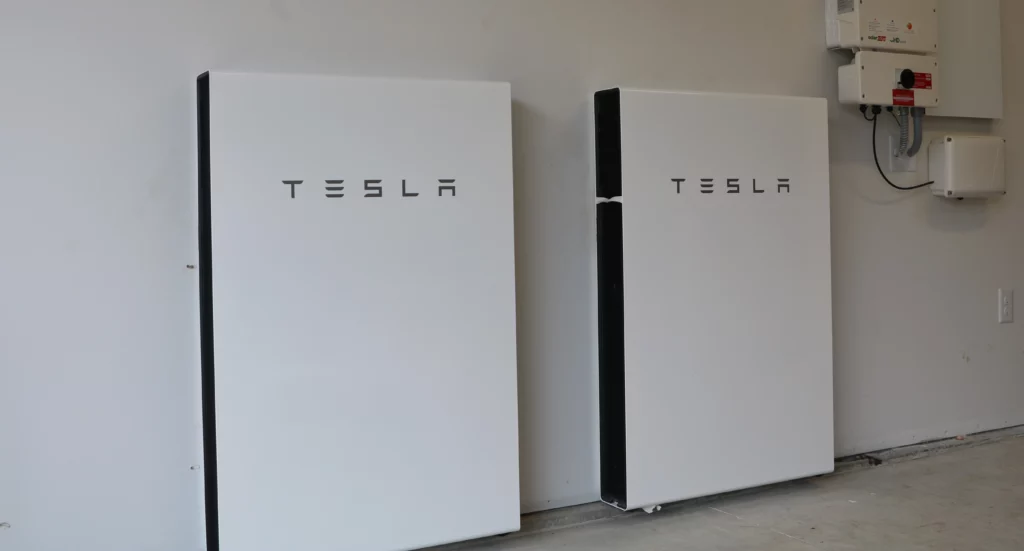
Minor Solar System Cost Adders
Roof Pitch
- Price Impact: $1,000
Steep roofs, with pitches above 10:12 (40 degrees), add labor cost because our crews have to work slower to stay safe.
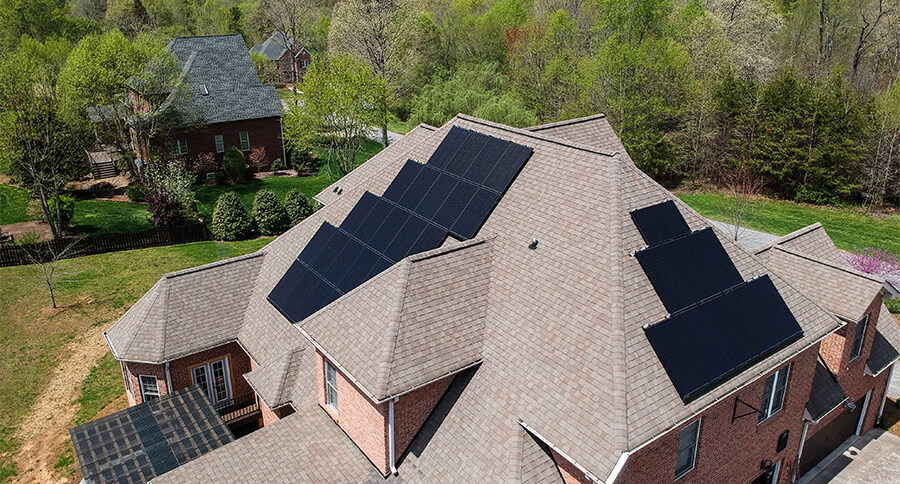
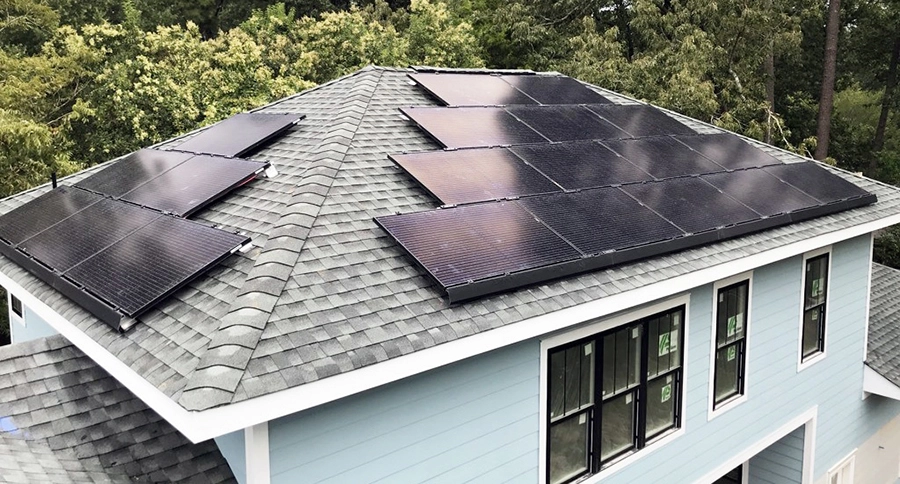
Multiple Roofs
- Price Impact: $400 Per Roof (After the 1st)
Installing across multiple roofs is sometimes necessary but it adds labor because our teams have to reset their safety systems and install additional junction boxes and conduit to connect all of the arrays.
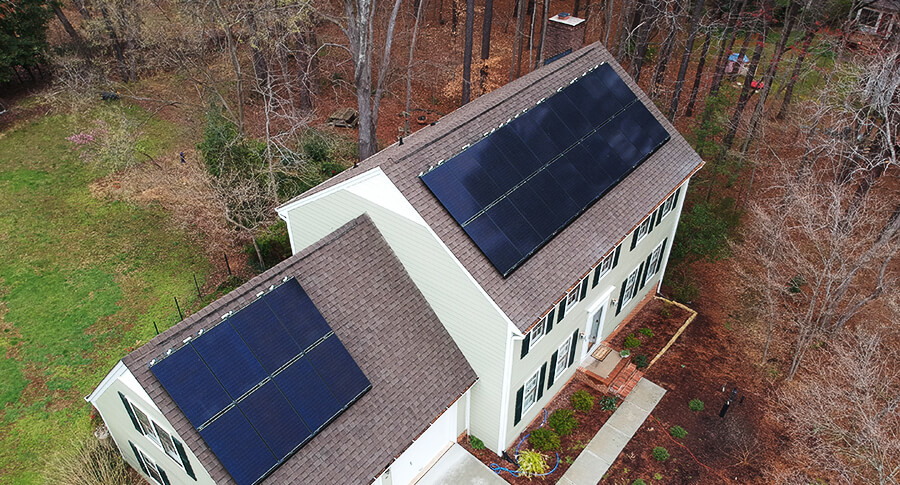
Metal Roofs
- Price Impact: $30 Per Panel
Metal roofs require additional “c-clamps” for the racking system which adds to the material cost of the system.
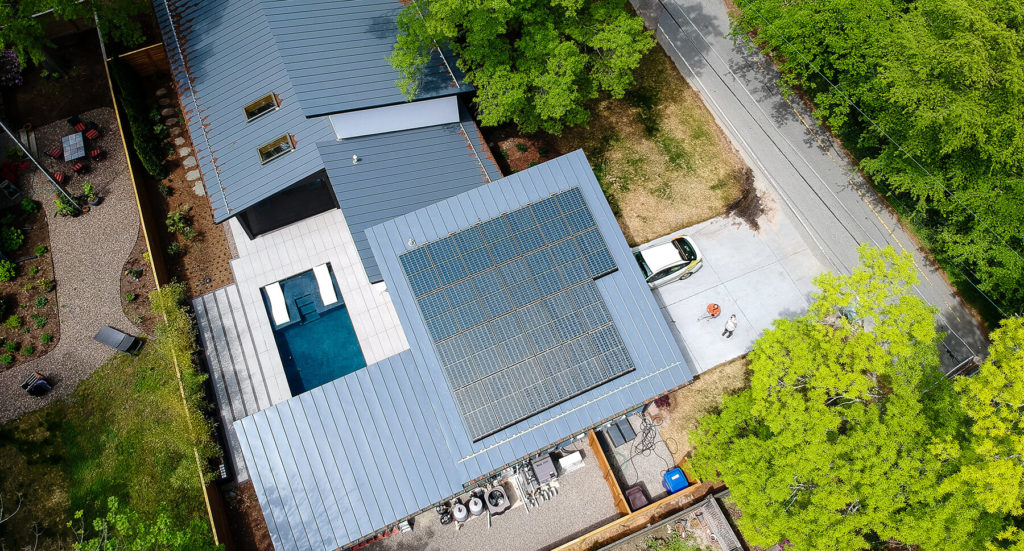
FAQs
How much solar your home needs depends on many factors, but our average system size in NC is 8.5kW which is approximately 20 panels.
The number of solar panels you need will depend on your home’s energy consumption, your energy goals, roof size, shading, and budget.
With utility rates inevitably rising, solar increasingly demonstrates its value as a worthwhile investment. Whether or not solar is right for you depends on a variety of factors such as your historic energy use, your budget for solar, and your goals (like going solar for cost savings or environmental reasons).
We cover this topic more in Module 4 of our Home Solar 101 Guide: “What Size Solar System Do You Actually Need?”.
Whether you’re looking at solar costs in Cary, Raleigh, Chapel Hill, Durham, Greensboro, or the coast, it depends on the size of your home and your energy goals (like whether you want to go net-zero or need battery storage for emergency power). Local factors like your electric utility’s solar policy also come into play when designing your system. All of our systems are 100% custom designed for your family and your home.
Unlike places like Arizona which have a lot of dust and little rain, North Carolina’s climate means there is little to no upkeep or cleaning needs for your solar panels installed here.
Occasionally we’ll get a request for solar panel cleaning if pollen debris builds up, but this is mostly an aesthetic decision with very little impact on solar panel performance. Ultimately, the cost to clean your panels in this scenario would outweigh the efficiency gained.
What's Next?
Module 6: Solar Financing Options in NC
After reading this you (hopefully) have a better understanding of how much solar costs and why it costs that much. To recap, the most important points are:
- Before any incentives are taken into account, a good ballpark price for a home solar system is $24,000-27,000 (+ $13,900 – $14,900 if you add a battery)
- Incentives reduce the cost of home solar by 30% for residential systems.
- Solar is extremely customizable. Your turn-key solar system cost could be anywhere from $8,000 to…infinity. It all comes down to your home, your goals, and your budget.
- The biggest cost variables for solar are system size, panel type, install location (ground vs roof), and battery storage.
Now that the cost of home solar is clear, you’re probably jumping to our second most popular questions: “What size solar system do you actually need?” or “What financing options are out there for home solar in NC?“.
If you’re ready to get started with your home solar system, don’t hesitate to reach out by clicking the get started button and filling out a form below or schedule a call with one of our solar educators.
Learn More Solar 101
Ready to Get Started?
Schedule a free assessment to learn more about solar power & battery storage for your home.
About Us
North Carolina’s solar power and building performance expert. Founded in 2001, we’ve worked for 20+ years to improve the way people make and use energy.

